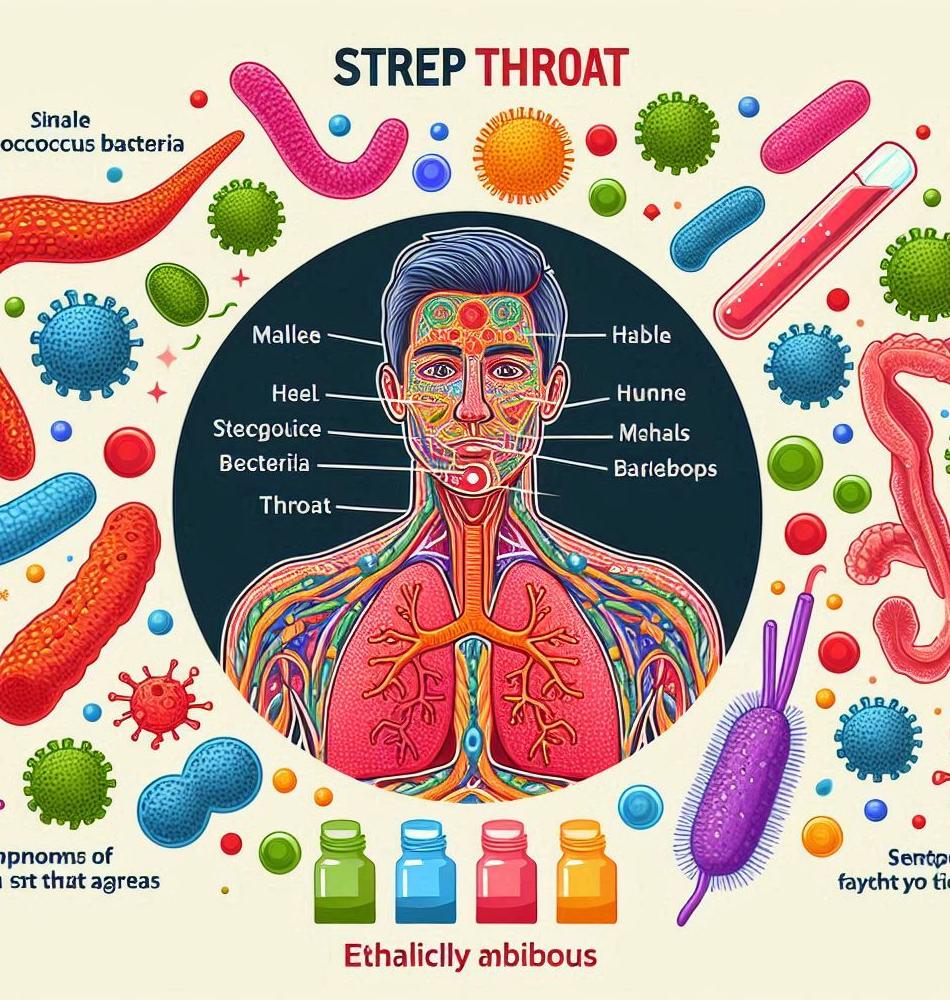In the bustling world we inhabit, health concerns can often lead to the formation of myths and misconceptions. One such concern is the topic of strep throat, particularly the notion surrounding strep carriers. If you've ever asked yourself the question, "Are strep carriers contagious?", you're not alone. Today, we’re diving deep into the realm of strep throat, breaking down the intricacies of carriers, symptoms, and transmission. So grab a steaming cup of herbal tea, put your feet up, and let’s unravel this infectious enigma!
The Basics of Strep Throat 🔍
Strep throat, an infection caused by the Group A Streptococcus bacteria, is notorious for its painful symptoms. It often presents itself with a sore throat, fever, and swollen lymph nodes. But here’s the kicker: some individuals can carry the bacteria without ever showing symptoms. These are known as strep carriers, and their contagiousness poses a complex dilemma.
Understanding Strep Carriers 🤔
Now that we’ve established what strep throat is, let’s delve into who these strep carriers actually are. Strep carriers are individuals who harbor the bacteria within their bodies yet do not display any signs of an active infection. This phenomenon raises an essential question—can these carriers spread the bacteria to others?
Symptoms of Strep Infection 🏥
Identifying strep throat can be straightforward if one knows the common symptoms. Here they are:
- Sore throat and pain during swallowing
- Red and swollen tonsils, sometimes with white patches
- Fever and chills
- Swollen lymph nodes in the neck
- Headaches and body aches
The Role of Strep Carriers in Transmission 💬
The short answer to the earlier question is yes, strep carriers can be contagious. However, the dynamics of how and when they can transmit the bacteria is intricate.
Key Points on Transmission
- Most strep carriers do not show symptoms, making it challenging to identify them.
- Transmission can occur when a carrier coughs or sneezes, dispersing bacteria into the air.
- Strep can spread through direct contact with respiratory secretions or sharing utensils.
When Are Strep Carriers Contagious? ⏰
Understanding the timing of when strep carriers are contagious is crucial for prevention efforts. While strep throat is most often associated with individuals showing active symptoms, carriers can sporadically become contagious.
Factors that Affect Contagiousness 👥
Several factors come into play when considering the contagious nature of strep carriers:
1. Duration of Carrier Status
Some individuals may carry the bacteria for days, weeks, or even longer. The risk of transmission varies depending on how long the bacteria remain in their system.
2. Environmental Conditions
Crowded spaces increase the likelihood of bacteria passing from carrier to susceptible individual, particularly in schools and daycare centers.
3. Individual Immune Response
An individual's immune system strength can also contribute to how easily the bacteria spreads. Those with weakened immune systems may be more susceptible to infection.
How to Protect Yourself from Strep Carriers 🚫
In light of the information we have gathered, it is essential to arm yourself with protective strategies, especially during outbreaks of strep throat. Here are some handy tips:
Practical Tips for Prevention 🧼
- Wash hands frequently with soap and water to reduce the risk of bacterial transmission.
- Avoid sharing personal items, such as utensils or towels.
- Encourage respiratory hygiene by covering mouths and noses while sneezing or coughing.
- Consider wearing a mask in crowded environments, especially during flu season.
- Attribute importance to regular cleaning and disinfecting of frequently-touched surfaces.
Frequently Asked Questions About Strep Carriers ❓
- Can a strep carrier transmit the bacteria even if they feel fine?
- How long can a strep carrier remain infectious?
- What should I do if I suspect I’m a strep carrier?
- Is there a way to tone down the risk of becoming a strep carrier?
Diagnosing Strep Carriers 🩺
If you suspect that you or a loved one might be a strep carrier, it is wise to seek medical advice. Diagnosis typically involves a rapid strep test or throat culture. Here’s what to expect during a doctor's visit:
- The physician will ask about your symptoms and health history.
- A throat swab may be performed to check for the presence of streptococcus bacteria.
- In the absence of symptoms, a carrier might not need treatment but should practice good hygiene.
Conclusion 🎉
In conclusion, the answer to the question "Are strep carriers contagious?" is a nuanced yes. While carriers may not present any symptoms, they can still transmit the bacteria under certain conditions. Understanding the nature of strep throat, recognizing symptoms, and implementing preventive measures can go a long way in combating the spread of this infection. Knowledge is power, and being informed is the first step towards a healthier community. So, stay safe, practice good hygiene, and arm yourself against pesky bacteria!

